Healthcare Program Development and Evaluation: A Case Study
VerifiedAdded on 2023/06/05
|5
|841
|102
Report
AI Summary
This report provides an overview of program development and evaluation within the healthcare sector. It emphasizes the importance of evaluation in determining the success of public health interventions and achieving set goals within budget. The report highlights the significance of evaluation questions in structuring the evaluation process and focusing efforts. It addresses key questions for process evaluation, particularly within the first six months of a project, such as the development and testing of standard policies, clarity of diagnostic and treatment procedures, effectiveness of training, and the quality of patient care. The report also discusses indicators of achievement, methods for measurement, and data collection strategies to assess the effectiveness of policy implementation and training programs. The conclusion underscores the role of evaluation in making necessary adjustments to improve project outcomes.
1 out of 5
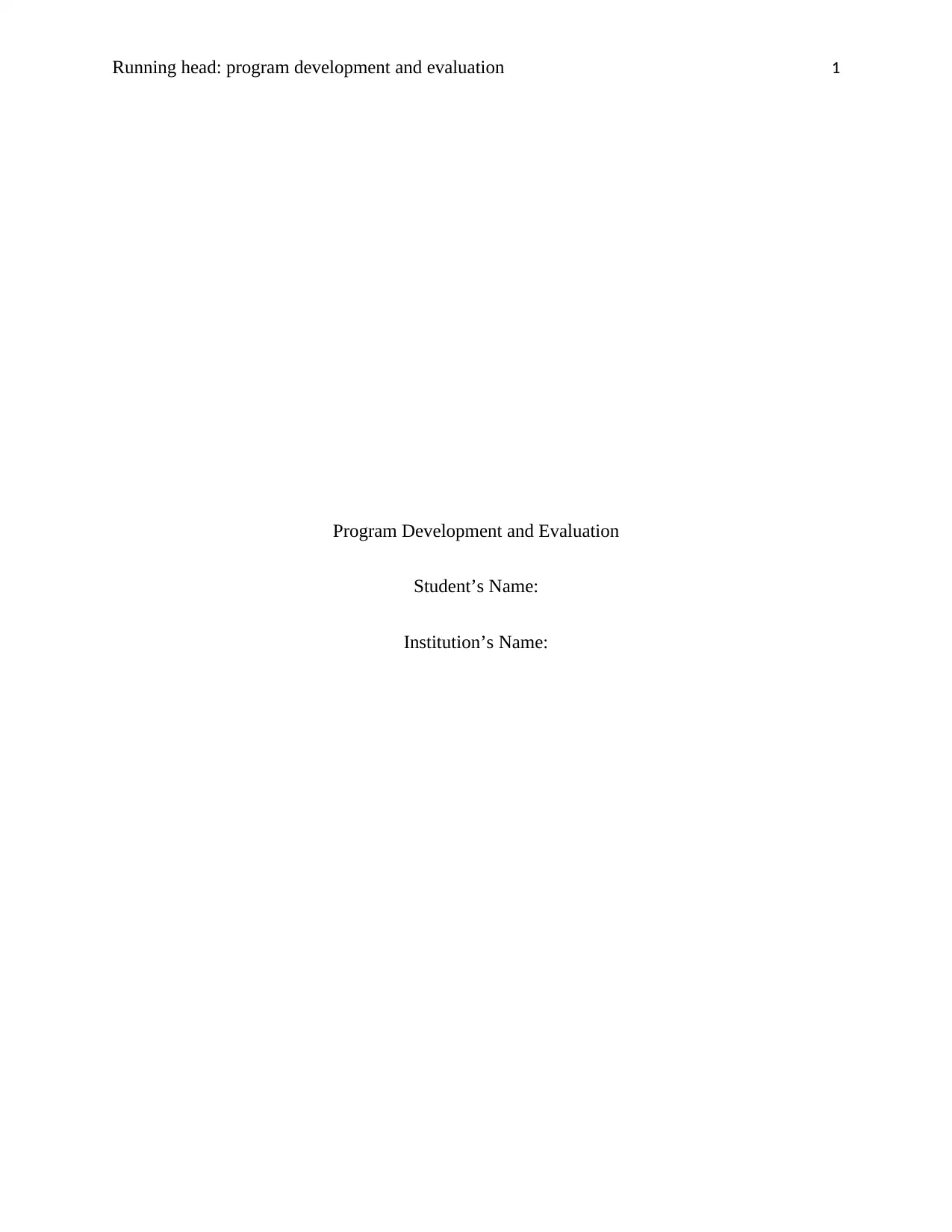
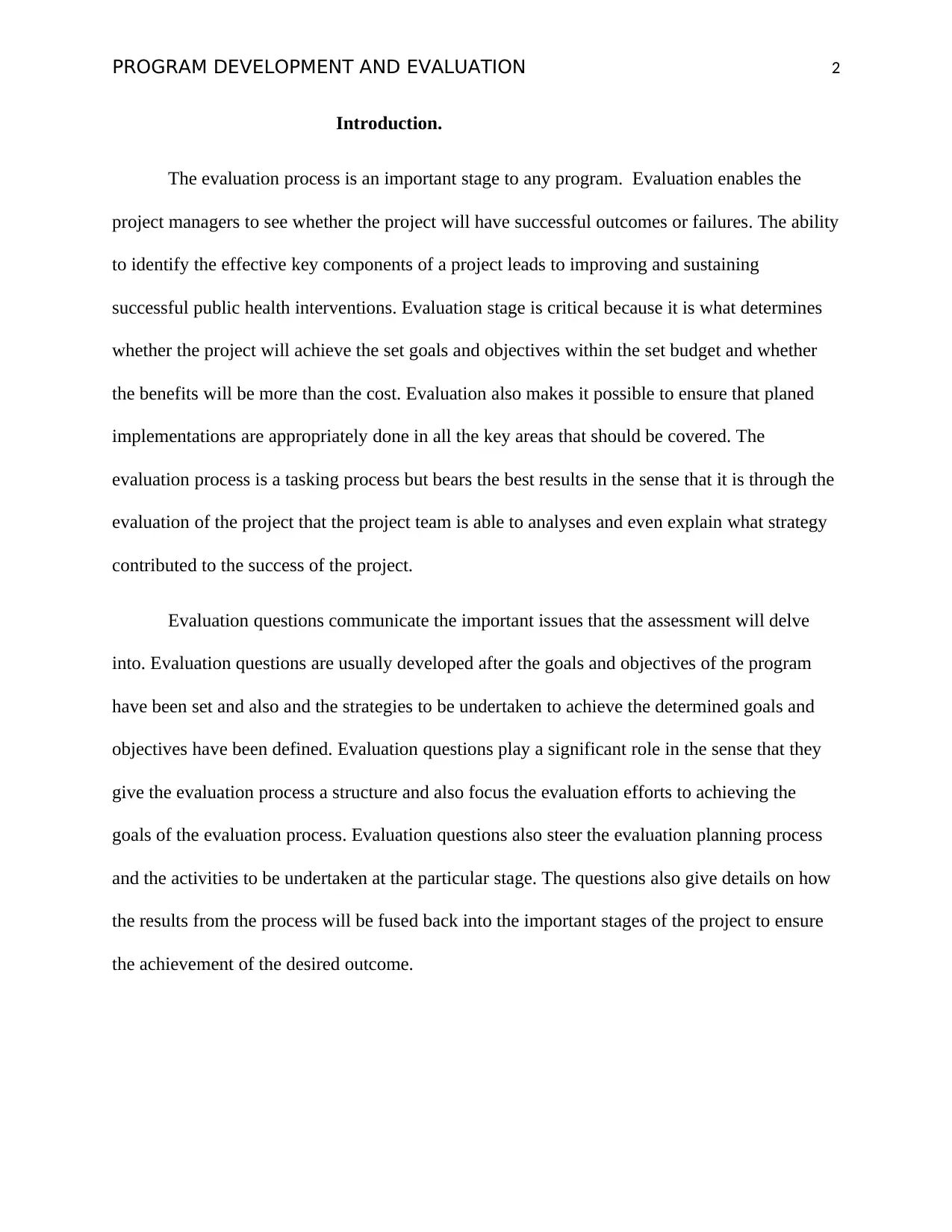
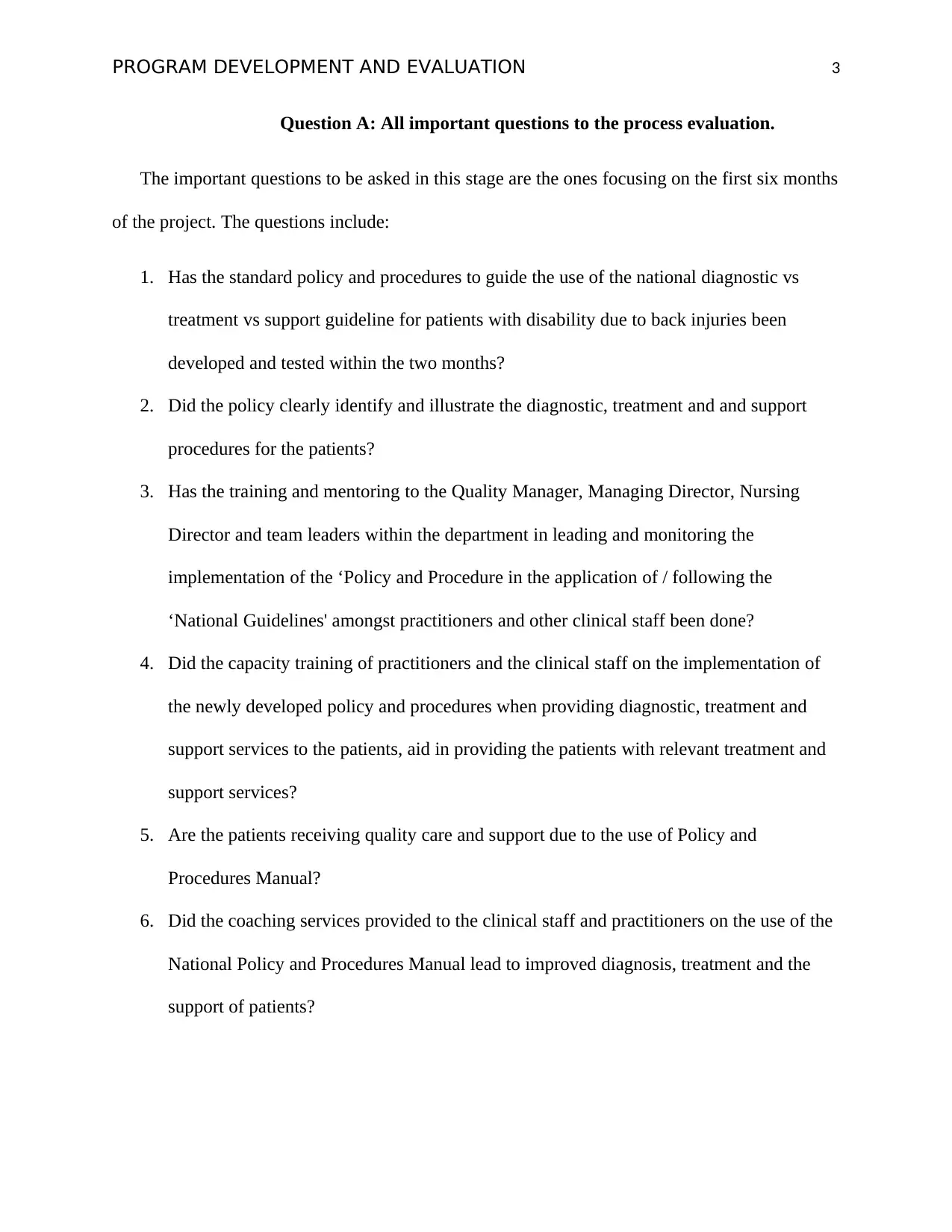

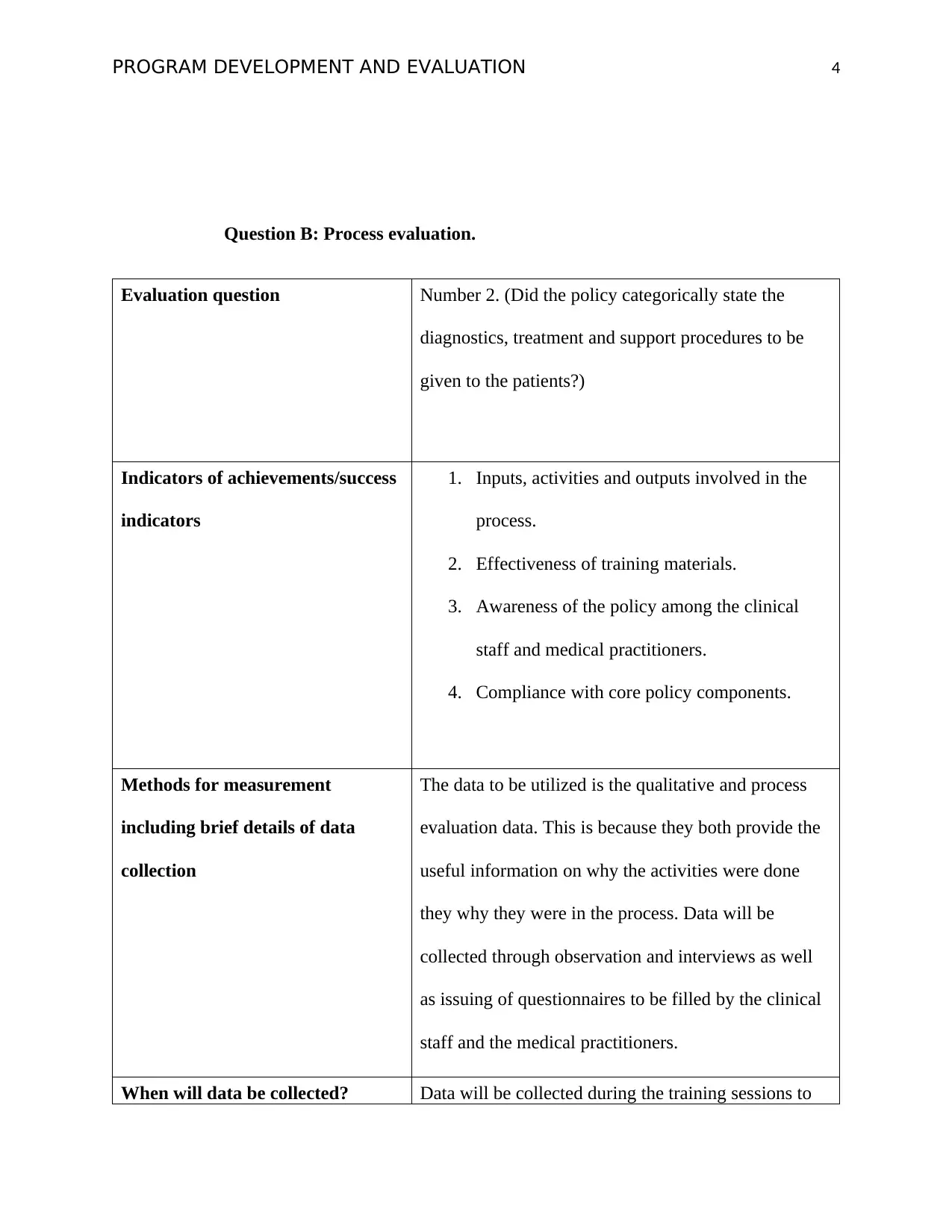
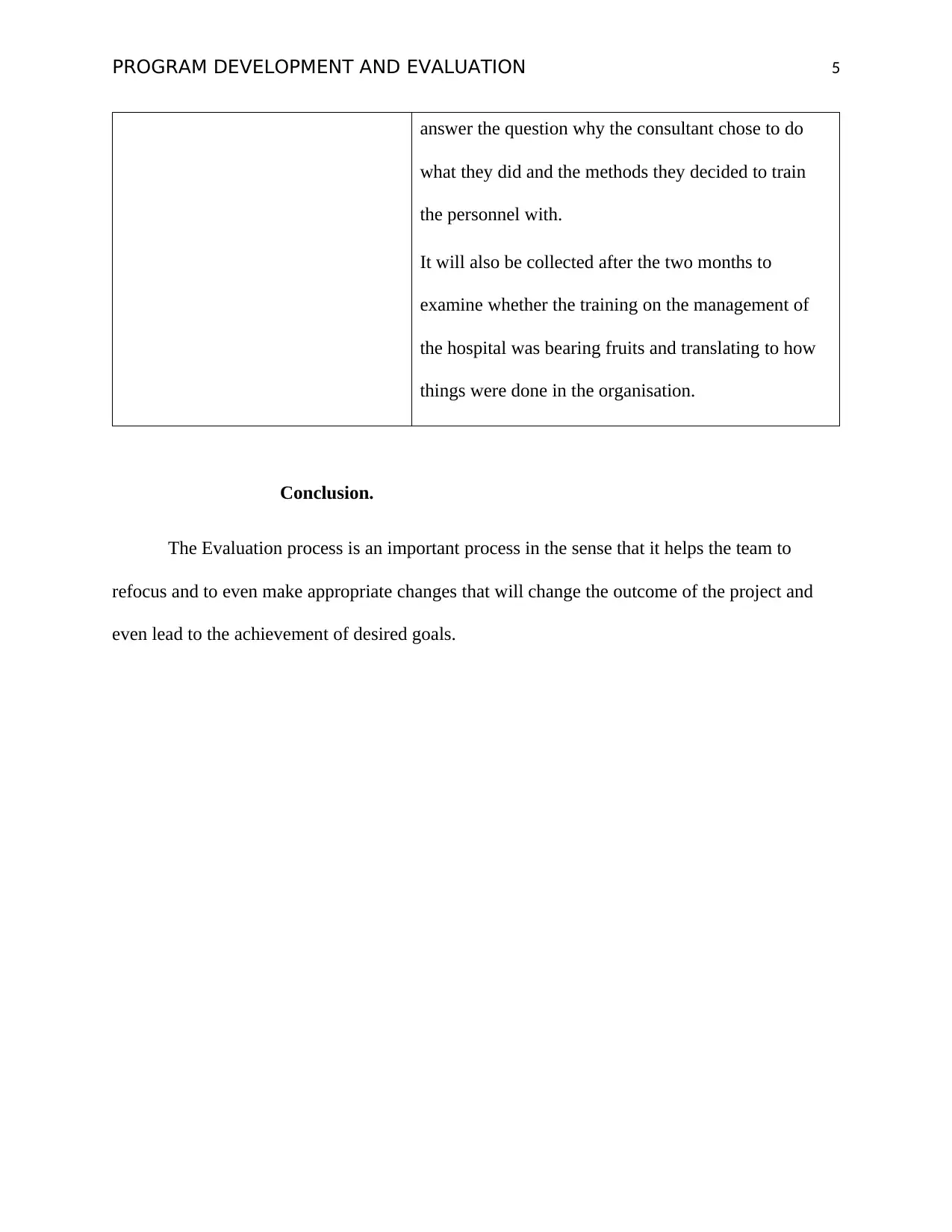





![[object Object]](/_next/static/media/star-bottom.7253800d.svg)